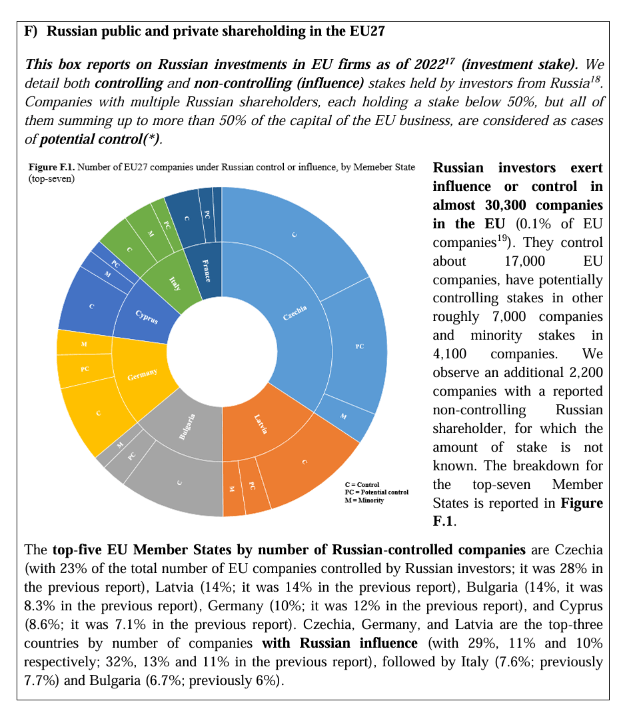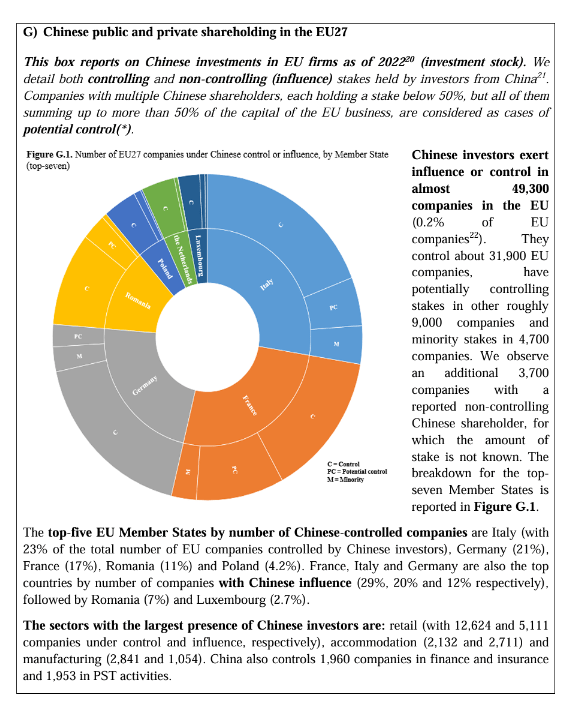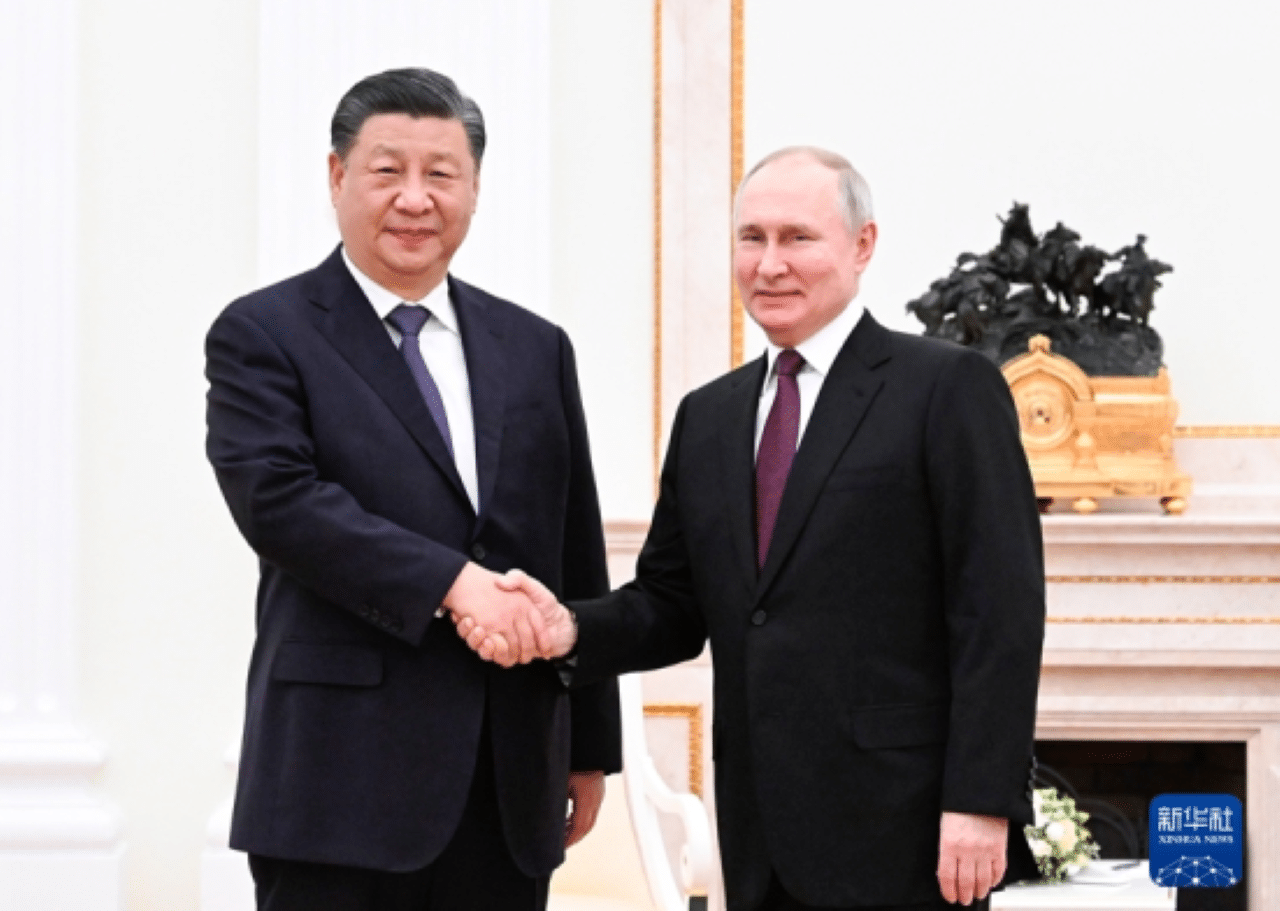Brussels, 17 October 2024
EU Member States and the Commission are strengthening their cooperation on identifying and addressing investments from third countries that threaten EU security or public order, according to a Commission report published today.
The 4th Annual Report on the screening of foreign direct investments (FDI) into the Union observes that the number of notifications to the EU cooperation mechanism increased by 18% since the EU framework was put in place in 2020.
The Report highlights the increased levels of attention being paid to the risks that certain investments from third countries may present to the security or public order in the EU and/or to EU projects and programmes of common interest. In addition, it showcases the growth in the number of Member States now screening foreign investment.
The European Commission’s recourse to detailed assessment has remained targeted and limited to exceptional cases: of the 488 cases notified in 2023, the vast majority (92%) were closed by the Commission within 15 days, while just 8% required a so-called second phase involving a more detailed security assessment.
The EU continues to be an open global investment environment. This is further confirmed by a positive cumulative trend of foreign investment into the EU over the past decade, the Report shows.
Screening has been particularly relevant in 2023 in the face of heightened geopolitical tensions and growing awareness of issues linked to economic security, which culminated in a Joint Communication setting out the EU’s first Economic Security Strategy.
National screening mechanisms, collective security
Over the past four years, the European Commission has successfully encouraged Member States to adopt and implement effective national screening mechanisms to protect the collective security of the EU, its Member States, and EU projects and programmes of common interest. After six more Member States enacted relevant legislation in 2023, 24 EU Member States currently have screening mechanisms in place, with the remaining three (Croatia, Cyprus and Greece) having taken concrete steps to this effect.
As a result, more than 1,500 transactions have been notified by Member States to the EU cooperation mechanism since the EU Regulation’s entry into force in 2020. At the same time, the Report notes that not all Member States are notifying transactions at the same rate – in 2023, 85% of notifications came from seven Member States.
Over the first years of operation and undertaken comprehensive evaluation, it has been possible to identify shortcomings of the current system. These are addressed by the Commission in its legislative proposal presented in January 2024 for the revision of the Regulation. The proposal, currently in the hands of the Council of the EU and the European Parliament, would make it mandatory for all EU Member States to have a FDI screening mechanism in place and would introduce a minimum level of harmonization of national screening laws across the EU, as well as ensure procedural improvements to the cooperation mechanism.


Background
The FDI Screening Regulation, which entered into force in October 2020, allows EU Member States to review foreign investments in their territory on grounds of security and public order, and also to take measures to address specific risks. The Regulation has also created a cooperation mechanism between the European Commission and Member State screening authorities, allowing for the exchange of information on individual FDI transactions in one Member State to identify possibly security or public order risks for other Member States or for EU-level programmes.
Annual Report
Staff Working Document
More information
Quote:
The EU is open to foreign direct investment, but this openness must go hand in hand with preparedness to address new and emerging risks to our security and public order. Over the years, in the wider context of growing geopolitical tensions, EU cooperation on FDI screening has been going from strength to strength. FDI screening has become a critical part of our broader Economic Security Strategy. This 4th Annual Report is further evidence to the increasing importance of the EU cooperation in assessing and addressing risks to our collective security.
Valdis Dombrovskis, Executive Vice-President and Commissioner for Trade
Source – EU Commission

